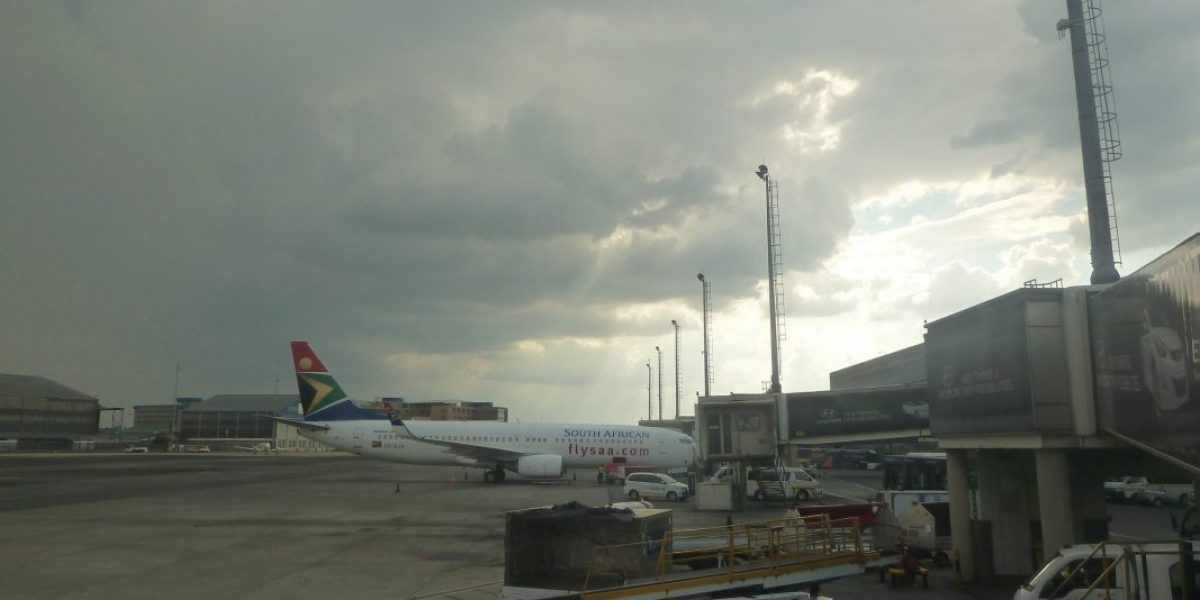But that doesn’t excuse our inadequacies. 2010 is an important consideration here but ultimately we need to get it right in our own best interests.
The good news is that JIA is full of people, including many foreigners. A properly managed expansion (construction at least is under way) should see significant economic benefits through increased arrivals, expansion of associated feeder services and increased flows of air cargo.
Ideally these gains should be extended by freeing our skies and cutting South African Airways loose from its monopoly/oligopoly over key routes.
But the rapid expansion in movement of goods and people seems to have caught the authorities by surprise. This is particularly apparent in the sometimes chaotic immigration and baggage handling processes.
My concern though is with South African Revenue Services (SARS) which still exhibits a “command and control” mentality associated with old ways of thinking — as reflected in its “DA 331” form and associated process management.
A visitor to the UK encounters a congested but organised process. Her Majesty’s Government’s Customs Authorities are part of the solution, not part of the problem. You could be forgiven for thinking they are not even present in Heathrow Airport. The form you fill out on arrival asks only for your details and is intended for the immigration authorities. Often you don’t even see a customs official.
You encounter SARS on your return. After filling out perfunctory personal details you are reminded that “failure to declare goods in your possession is a contravention of Section 15(1) of the Customs and Excise Act 91 of 1964”.
Hold on: 1964? That prepares you for what is to follow: a list of 13 goods categories that are controlled in one way or another.
Apparently we naughty consumers are not allowed to bring in more than certain quantities of: gifts; wine and spirits; cigarettes, cigars, and tobacco; perfumery and eau de toilette. Presumably revenue considerations are paramount here.
But how much can you really smuggle into your suitcase? Are these goods so much cheaper overseas? And isn’t the threat of being stopped sufficient deterrent?
There must also be some restrictions on goods “taken from the Republic” (how dare you take the Republic’s goods!) or “that have been exchanged” (huh?) and “remodeled” or “repaired” (Que?); and “goods registered for re-importation (DA 65)”. Sorry, you lost me there — please explain?
Then you must specify the “value of SA currency in your possession (Rand)”. Presumably this means notes — but why does SARS want to know this? And then you must specify “value of other currency in your possession”. Exchange controls no doubt, but surely the Reserve Bank is interested in hard currencies leaving the country?
Now list all the items corresponding to the 13 that you may have (apparently illegitimately) acquired in foreign parts plus their values (“invoice price”). Yoh! Did you keep those invoices?
But hold on. Page 4 of the SARS treatise has a helpful guide to duty free allowances. Phew! Apparently “personal effects” are duty free. But jewellery is excluded (ah, so that’s what they mean by “remodeling”). And the condition is that: “Visitors may be required to lodge a cash deposit to cover the potential duty/VAT on expensive (sic) articles pending re-exportation.”
Sounds like extortion to me. And what exactly is “re-exportation” of personal effects?
It gets worse. Remember those restricted goods? Take a deep breath: “Allowances in respect of goods acquired abroad are only valid once per person during a continuous 30-day period and shall also not apply to goods imported by persons returning after an absence of less than 48 hours.” Huh?
After you’ve battled your way through immigration (on my last trip we queued from the road outside) and have tracked your bag down (if it makes it to the carousel) you are so ready for home.
But you have one more obstacle to confront: a SARS official dutifully collecting all those forms (one by one patiently checking they have been filled out), seemingly oblivious to that long crush of people desperately trying to flee the airport building.
But what exactly does SARS do with those forms? Is this the development state in action? Or is this the (hopefully dying) echo of a previous failed development state called apartheid?
So when Pravin Gordhan speaks of reforming Customs I’m all for it. Hopefully it will lead to major liberalisation of the dominant “command and control” mindset towards a more intelligent, facilitative approach towards people and movement of goods.








